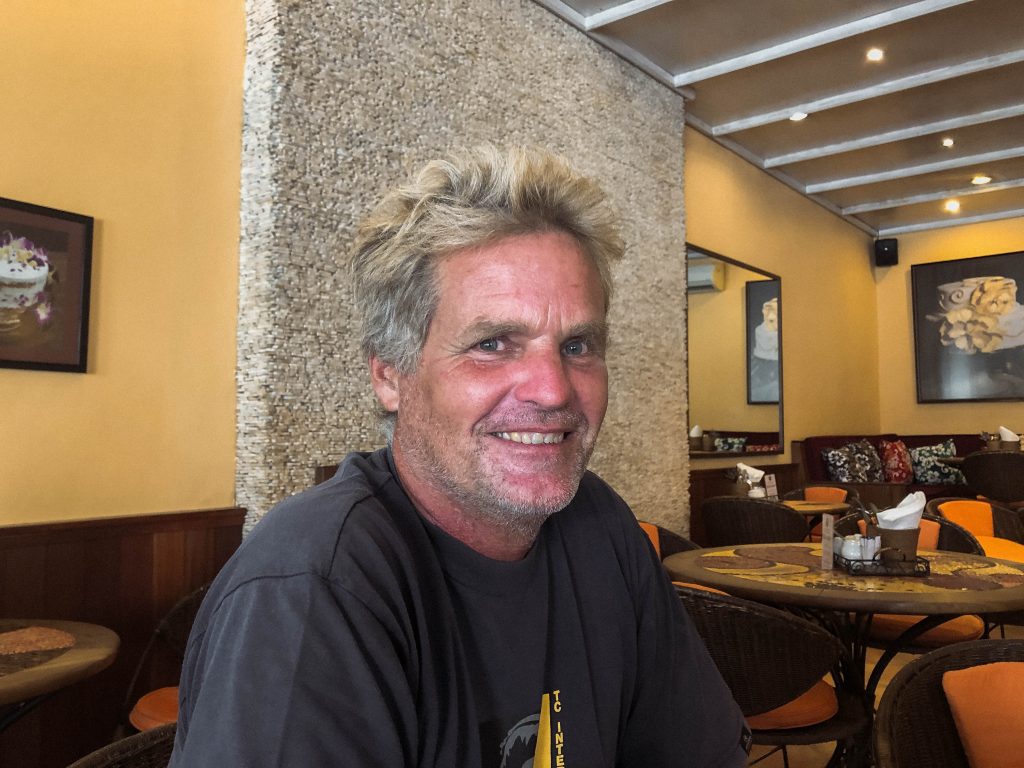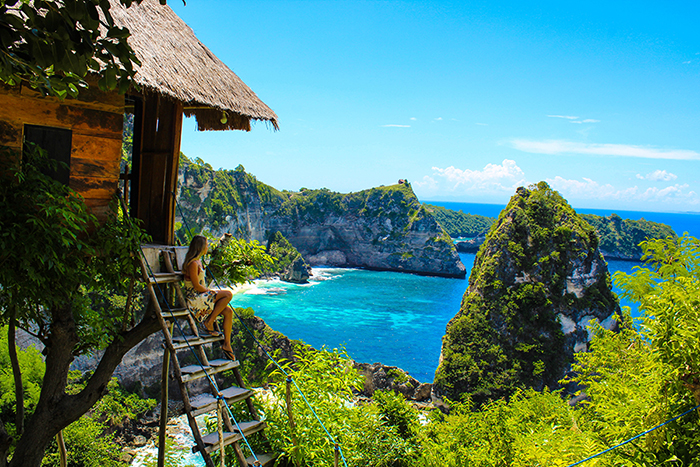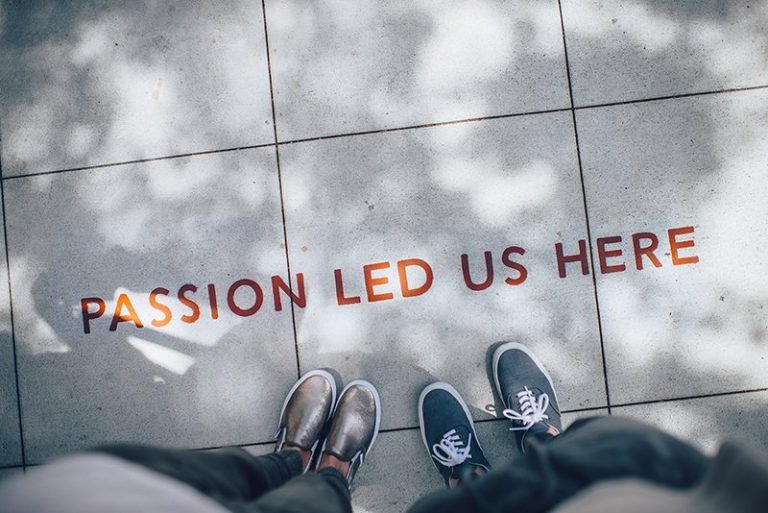“Find the flow of your true self, and go with it.”
Anders Åhman, who usually goes by the name “Cookie,” is someone I have known almost my entire life, purely based on being my best friend’s dad. And it was probably because of this I never questioned how it was he ended up in Bali. We all grew up together, and it’s one of those cases where you never really question how a person got there, just that that person has always been there. (When you grow up with a group of international friends, it’s easy to forget not everyone is Indonesian, despite having grown up here.) I knew he surfed, I knew he dabbled in the wedding business, and he also started building sturdy but cheap houses from some sort of material that my friend didn’t really know how to explain and therefore, I didn’t really know what it was. And only upon interviewing him recently did I realize there is usually a lot more to someone than you think. Who knew after 13 years you could still learn new things about people.
For example, the name Cookie (or Kåkan if you’re Swedish) is something leftover from his teenage years. “I was a ski bum in a place called St. Anton in Austria,” He began. “It was tough to rent a place to live for six months. I ended up renting what used to be a wardrobe, basically. It was very, very small. And I had to pay a lot of money to get that wardrobe. But I couldn’t cook inside a wardrobe. My diet consisted of cereals, hard bread, and a lot of chocolate bars, around one and a half kilo of chocolate a day. And I became the Cookie Monster,” And it stuck.
Originally from a little fortress town on an island just 30-40 minutes outside of Stockholm, Sweden, Cookie ended up in Bali when he decided he wanted to learn how to surf. “One summer my friend and I were just sitting around and thinking, this is kind of boring. What’s fun?” He elaborated. “Surfing is fun,” And because there was no surf in Sweden, they came to Bali. “The first trip was in 1992, I think. I came here as a beginner,” And then he kept coming back.
What is perhaps more random and intriguing than how he first came to Bali was how he ended up deciding to stay in Bali permanently. “I met the girl who ended up being my future wife on that trip actually,” He mentioned. She eventually moved to Sweden, and when they decided to get married, agreed that Bali would be the location of their wedding, as that was where they met. “And on that six-month honeymoon, we had a bit of a shipwreck situation out among the islands in Indonesia. We ended up stuck on a tiny island for a couple of months. And that was what made us decide to want to move to Indonesia. Thanks to a shipwreck accident,” Cookie explained.
Well, it wasn’t quite the dramatic shipwreck like you see in the movies with people screaming and jumping off board while alarms blared in the background. It was more like, “You know those sketchy Indonesian boats?” He started. “We rented one of those to take us from one bigger island to the smaller island. And halfway in between, it broke down.” “And when the guy who was trying to fix the engine came up with his sandals and started cutting his sandals apart to fix the engine, I figured you know this, this is not gonna work.” He continued saying he could see the island they were headed towards and knew that, as they were located in the very Western points of Indonesian, depending on where the current and wind was going to take them as they drifted, they could end up either in Africa Australia, India or back to Indonesia. “So, I figured we better try to do something, you know?” And he took action. With one other guy, Cookie jumped onto a little dugout canoe and started paddling for the island that they could see. “I thought it was going to be a three-hour paddle. But seven or eight hours later, in the dark, we get washed up on this very remote island,” Knowing that it was a heavily malaria-infested island, they spent the night in the water pools by the reef to avoid getting bitten. While the main boat continued drifting.
The next day they went to find a boat that could go out and look for the drifter, which still had his wife and nine other westerners on it. It was during this moment that Cookie saw a surf charter boat come by, and together they chased it down and convinced the captain to use his boat to help look for the other boat. “I had bearings of where we dropped them off so I could find where I left them yesterday. Obviously, from then, they’d been drifting,” He told. “So we got to where the bearing was, and nobody was there. And the captain of the boat we were borrowing, was like, well you know we have to go back now. We can’t spend more time looking. But as we were turning back, we saw this pillar of smoke. And that shouldn’t be out there, so we went to go and investigate, and that was the boat. Somebody had lit a fire on the tire.” And it was that experience, coming onto a surf charter boat, from the wreck that made Cookie think, “I never really found something I could love to do, but I could probably do this and actually enjoy it,” Which led to him looking into starting a surf charter business, and eventually move to Bali.
From very early on in his life, Cookie realized that he was never one for a normal job. “Six months after my first job, after school, I realized this is how people live. Go to work, lunch, fika, and so on, then go home. That’s a major part of your life,” He discerned. “So you either have to love what you do or make as much money as possible as quickly as possible, so you have as much freedom as possible to pursue what you want to do.” Part of this opposition to the normal life presumably was also an outcome of the international exposure he received at a young age. “My first 12 years I grew up in Sweden. And you think that’s what reality is. Everybody looks like this and everybody thinks like this. And then my dad got a job in the Caribbean, so we moved to a small Caribbean island, the Cayman Islands. For two years. And while we were there, we also traveled through the States and Central America. I took local buses all through Central America. And on the way home, we ended up taking a cargo boat from the states to Morocco, and from Morocco to Italy and from there, we go about through Europe.” “So between those years from about 12 to 14, I realized, the world doesn’t exactly look like Sweden, and everybody doesn’t exactly think like us. But that’s okay. It’s a cool world out there.”
Upon leaving school, he committed to a life skiing in the Alps. And doing whatever jobs necessary to stay for six months. “That gave me a taste for how enjoyable life can be. Everybody kept saying you have to go back and join reality. And I was like, can’t this be reality?” He persisted and kept coming back every winter. And to fund these travels, he had to be creative in the odd jobs that would make enough money to last him these long trips. Sometimes he would be a bouncer for a night club, other times a ski instructor or a dishwasher at a restaurant. One story involved forged ski passes and an American guy’s girlfriend held in jail as collateral (you’ll have to ask him, it’s kind of a funny story.) At some point, Cookie and his friend discovered they could make a lot of money during the summers, selling hotdogs and soda. “I would work two or three nights a week. From 12 am to 4 am, just waiting outside nightclubs. People come out, they get the munchies, and here I am with my soda and hotdogs.” And that would be enough of an income for the rest of his year. “I could sell 400 hot dogs in a matter of hours and make good money on it.” “My dad wasn’t too happy about my career choice. But he couldn’t say much when he started borrowing money from me,” Cookie laughed.
Part of this “hot dog business” as they called it, even once got him and a friend thrown in jail. How it started was when they were selling hot dogs and drinks outside big concerts. “We’d have Rolling Stones going to Stockholm, and there’s like 60,000 people going there. So when they’re done jumping and screaming, here we are standing outside, and we’ve got some hot dogs and drinks. It was a very quick, very lucrative couple of hours.” It wasn’t just in Stockholm, however. They took their business on a road trip and went to Gothenburg, Malmö, Copenhagen, and Oslo. “The first time we did it in Norway, we were extremely successful.” Cookie explained. “I mean, the price of soda in Norway was something like 20kr. And we could buy it for 3kr in Sweden. And they have 20kr coins. So it’s really easy for the Norwegians to just give you a coin for a soda. So I think we sold soda for something like a little bit over 20,000kr. In a matter of hours, in Oslo.” Which, in those days, was somewhere around $3000. Their victory was short-lived when, in a matter of hours, they somehow managed to lose their earnings, as his friend left their wallet behind at a store, and it was stolen.
On the second Norway trip, “We’re like ready to kickass in selling soda again. And we’re setting up for the big onslaught when somebody comes and says, “this is not Norwegian soda,” and I was like no, it’s Swedish!” There’s free trade between Norway and Sweden, and not even a border, so of course, they didn’t think twice about bringing all this soda over. Until the officer who was questioning them went, “Did you pay the carbon dioxide tax for these?” And they both went “Nope.”
“So they picked up all our stuff. Took us to the local jail. It was a police station and the jail. And we got in front of the judge. And they said okay well, you’ve brought in X amount of soda. And the total fine for this would be somewhere around 2000 dollars.” “So the judge gives me a 2000 dollar fine for bringing in the soda, and then he gives my friend a 2,000 dollar fine for bringing in the soda. And we’re like, that’s crazy. The maximum fine for this crime is 2,000 dollars, so you know, you can’t give it to both of us.” “we refused to sign. And they were like, okay, come here then. And they stripped us of our belts and our shoelaces and all and were like ‘okay you go into that cell, and you go into that cell.’ And yeah, we ended up in jail.”
“And they said, we can’t do anything more here. You have to wait 4 or 5 hours or until the new judge comes in. Because we wouldn’t accept the judgment. So we ended up sitting in prison. And I always figured it would be easy to sit in a cell for hours. Just sit and meditate, right? But you know, you literally end up walking around in circles like a caged animal; it wasn’t so cool.” “And it was only supposed to be for 4 hours. But they took our watches and stuff away. We couldn’t communicate either because we’re in different cells. And I was only aware that a long time had passed because there was a block of light coming into the cell. And we had gotten in around 9’oclock in the evening. And then, breakfast came around.” What had happened (as the new guard came around and didn’t even recognize who the Cookie and his friend were) was that they had forgotten about the two people in their cells. And by that time, the judge (and others included) were so embarrassed about the situation that instead of $2,000 each, they got a total fine of $200. “It did give us some realization, though. I don’t want to spend any time in jail.” He concluded.
Having a history of odd jobs and a not so regular lifestyle, it seems almost expected that Cookie decided to move to Bali literally to start his own surf charter boat business. “It was the first time I felt I could work eight hours every day for a week and enjoy it.” He mentioned. “So we took a loan on the house that I had in Sweden. We brought that money over here to buy a boat. And that was just as the economic crisis of 1998 happened. So the money that I got from Sweden I was supposed to use to build a boat for, was suddenly enough to do a lot more for.” He bought the boat, built from scratch in Sulawesi. Put the rest of the money into land, and started building a house. And through that, he took a turn into real estate (as well as the boat business at the same time).
“Doing the surf charter thing was very adventurous. We traveled all over Indonesia with that boat. We had a couple of engine break downs. And floating out in the middle of nowhere again, ourselves. So we had a lot of adventures. But it didn’t really make any money.” He remarked. However, “building a house, renting it out, and selling it for profit, that made money.” So, at some point further down, around nine years after starting the surf charter boat, “I realized that the boat was 98% of my headaches but 0% of my income. And doing real estate is what worked.” Eventually buying land, building houses and selling them, essentially real estate development became his business instead. “I gave the boat away to the staff. And they were smart enough to just cut it up into pieces and then sell it. Instead of trying to run it.” He laughed.
“I was always looking for that passive income.” Cookie expressed. “So you build up enough assets that those assets work for you. So that I could be free enough to do what I want.” “So when I found a good tenant, on a piece of land that I had that were doing weddings. I jumped on that opportunity and built a wedding chapel for them. And they rented it for ten years. That’s how I got into the wedding business.”
But then, those tenants also had a business next door to their joint business that they eventually wanted to focus all their efforts on. Instead of splitting their focus between the two properties. Suddenly, they were not interested in extending the contract for more than three years. “And I wanted a long term project,” Cookie divulged. In lack of their interest in becoming business partners, he went in search of someone else who would be interested. “I got connected with this young Chinese guy, who didn’t have any money, but he had big dreams.” He told. “So I told him okay we can team up and create a company together. I’ll provide with the property here, and you can do the marketing and sales in China,” They would split the profits. And that became the wedding business.
Just when you think it ends there, as it turns out, Cookie also has an ongoing project in Lombok: Rebuilding houses for the victims of the 2018 earthquake. “Being in real estate and development, you realize we’re building exactly the same way that they did 200 or 300 years ago. There hasn’t been much of a change,” He started. “And I always had this conviction that there has to be a better way of doing it.” “Faster, cheaper, better insulated, just better.” He was always looking and inquiring about other solutions to building. Eventually, he met someone in Sweden who was thinking along the same lines. This guy then got connected with the Swedish navy shipyard, where they were building sandwich panel boats. These are super strong military boats made out of fiberglass and Expanded Polystyrene (EPS). EPS is something more commonly known as the white insulation foam you see in packaging. “It has many good qualities in the sense that it’s super light, but also quite condensed, so it’s super strong.” Cookie explained. “So I thought why not use that for houses.” The boat way of producing the materials was much too expensive, but luckily through that connection, this other Swedish guy was introduced to a builder of refrigeration trucks. “Big transport trucks need to be light and strong and insulated too. And those factories were doing panels at a big volume.” “So I eventually bought the rights for Indonesia for this German production company that did panels in big volumes. And that’s how I started building panel houses in Indonesia.”
At some point, the pricing wasn’t competitive enough either. But instead of letting that deter him, Cookie realized that he could do the same things that the Germans did, but here in Indonesia, and manually instead of having big machines. “So I buy the ingredients and put it all together here. And that became a viable enough house building system. That once the Lombok earthquake happened, I could match that budget of 50 million for a 36-square meter house. You know, we could put up a house for that. And that’s how I got into the social housing business.” The great thing about EPS, Cookie elaborated, is that it can go high end, or it can go cheap. “I built some of my wedding chapels with this stuff,” He shared. “It all depends on your finishing basically,”
As someone who has not only been here for so many years but has also been working with the local people for so many years. I asked if he had any thoughts on the developmental growth the island has experienced over the years. What are some of his hopes or ideas for the future of this island? “Bali has a very special place in my heart,” He immediately responded. “And development is always going to have two sides to it. There are parts that are good. And there are parts that are bad. And the better you get at balancing the two, the better it is.” “But people almost have to get rich first, before they start taking care of the other important values.” “And the Balinese, they have in their culture something called Tri Hita Karana, which is that they strive to be one with God. But to be on with God, they also have to be one with man, and they also have to be one with nature. And they’re pretty good at trying to be one with man; it’s all communal decisions. The majority rule doesn’t exist here; it’s all or nothing. Everybody has to agree, or we don’t do it. And that’s very beautiful.” “They just need to figure out what the one with nature part means. And if they can get that right, then it is a paradise. it truly can be a paradise.”
Feeling inspired by the graceful way he inputted and described one of Bali’s greatest philosophies, I asked if he had his own philosophy of life. “Find your flow and go with it.” He replied. “Our true sense of self is the connected self,” “And our false sense of self, better known as our ego, is the sense of self that is separated from the whole,” “So you have to find the flow of your true self, and it’s going to be different for everyone.” It’s just like this, “Every cell in your body has the same origin and the same core. It was once one, right? It became two, then four, then sixteen, and so on.” “But somehow, these cells have decided yeah, I’m going to become nails, and another becomes skin, some goes to be the hair and eyes and the whole thing works in perfect harmony,” “Because we all find our roles,” The cells in your brain can’t tell the skin it’s doing its job wrong just because it’s different. They’re doing their own thing. “And that is what humanity should and could be.” Cookie defined. “Your true core is connected to everything.” “Find your place. Let go of ego and false notions of what happiness is,” “And go with the flow.”
————————————————————————————————
Seven Stones Indonesia is a dynamic group of professional and experienced consultants, advisors and realtors who genuinely want to help people with their investment needs in Bali and Indonesia.
Our vision is to create an ethical company that focuses on doing good … then doing well. For us, this means doing good, honest business. It’s an ethos, which creates a culture of trust, honesty and integrity among our team, our clients and our business partners.
We believe in modeling our business around the concept of a greater good to enhance the lives of the people around us. We encourage success and we actively support like-minded souls on their missions.
Seven Stones Indonesia offers a wide range of Legal Advice and Marketing Services and Investment Management opportunities. We aim to be your partners in growth.
For more information visit www.sevenstonesindonesia.com or email [email protected]


















